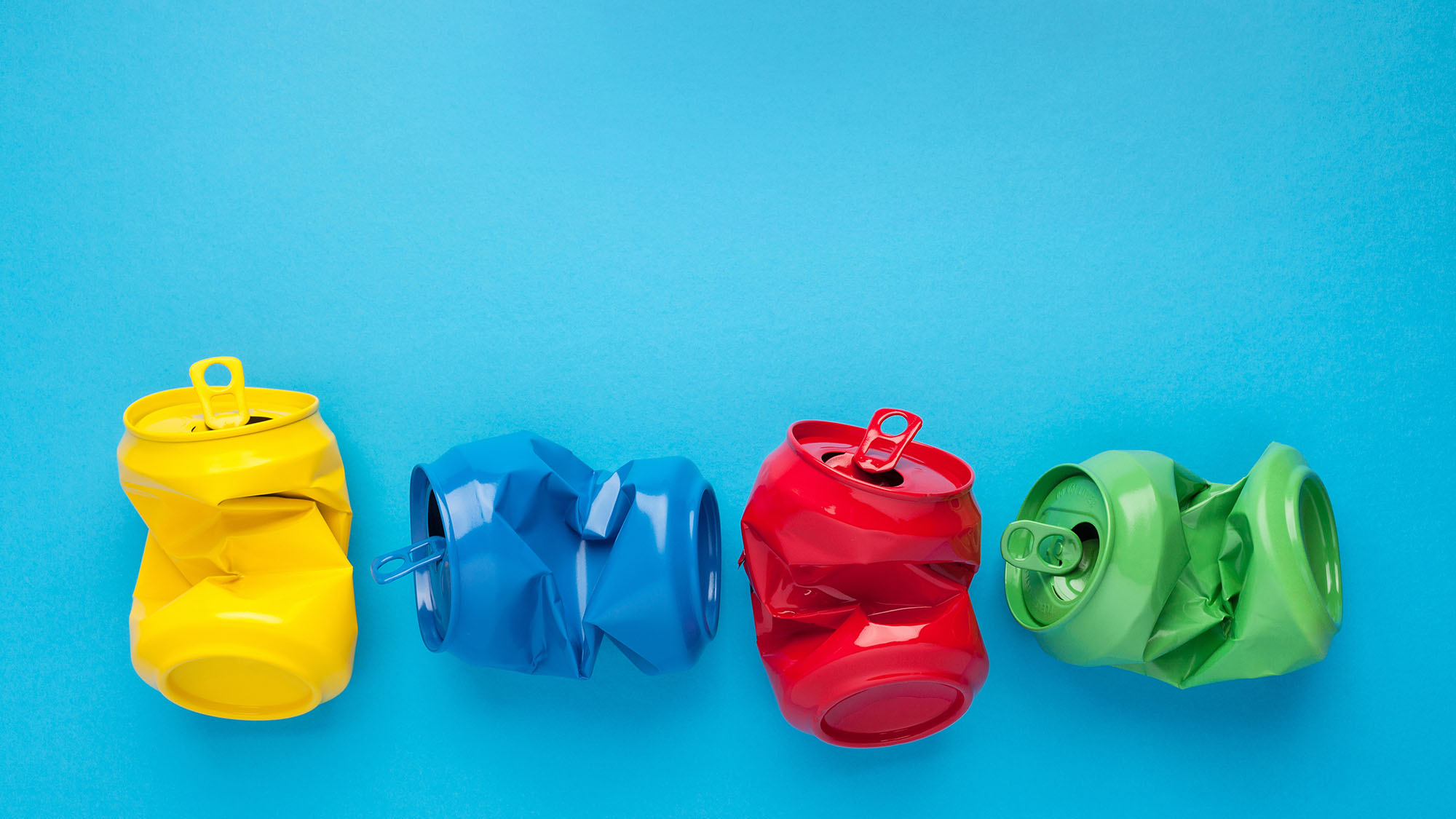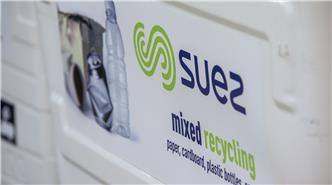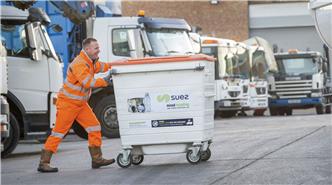Simpler Recycling reforms for businesses in England
The UK government has introduced ‘Simpler Recycling’ waste reforms for businesses in England.
The scheme is designed to simplify the recycling system so people can recycle the same materials whether they are at home or in the workplace. Standardising waste collections will help to eliminate confusion over what can be recycled, with the aim to improve recycling rates and protect the environment.
What does it mean for businesses?
Under the Simpler Recycling scheme, businesses, schools, hospitals and other ‘non-household municipal premises’ in England must separate dry recycling (including paper, card, plastic packaging, glass and metal) from general waste for collection. In addition to dry recycling, if a business generates food waste, no matter how small the quantity, this will also need to be separated for collection.
The following recyclable materials are required to be separated from general waste:
- Glass packaging including bottles and jars
- Steel and aluminium tins and cans
- Steel and aluminium aerosols
- Aluminium foil
- Aluminium food trays
- Steel and aluminium jars and bottle lids
- Aluminium tubes
- Plastic bottles made of polyethylene terephthalate (PET, including amorphous, recycled PET), polypropylene (PP) and high-density polyethylene (HDPE)
- Pots, tubs and trays made of PET (including amorphous, recycled and crystalline PET), PP (including expanded PP) and polyethylene (PE)
- PE and PP plastic tubes larger than 50mm x 50mm
- Cartons for food, drink and other liquids, including aseptic and chilled cartons
- Plastic film packaging and plastic bags made of mono-polyethylene (mono-PE), mono-polypropylene (mono-PP) and mixed polyolefins PE and PP, including those metallised through vacuum or vapour deposition (to be included from 31 March 2027)
All paper and card except:
- Paper and card that contains glitter or foil
- Paper that is laminated
- Stickers and sticky paper
- Padded lined envelopes
- Paperback and hardback books
- Wallpaper
- All food intended for human or household pet consumption
- Biodegradable material resulting from the processing or preparation of food, including inedible food parts such as bones, eggshells, fruit and vegetable skins, tea bags and coffee grounds
31 March 2025
Businesses with 10 or more full-time equivalent employees, schools and hospitals must separate their dry recycling and food waste for collection separately.
31 March 2027
Micro firms (businesses with fewer than 10 full-time employees) must separate their dry recycling and food waste for collection separately.
All businesses will be required to separate plastic film for collection - which will be collected as part of the plastic waste stream.
Simpler Recycling with SUEZ
Complying with legislation changes doesn't need to be complicated. With SUEZ, you may only need 3 bins (or 4 if you generate glass waste).
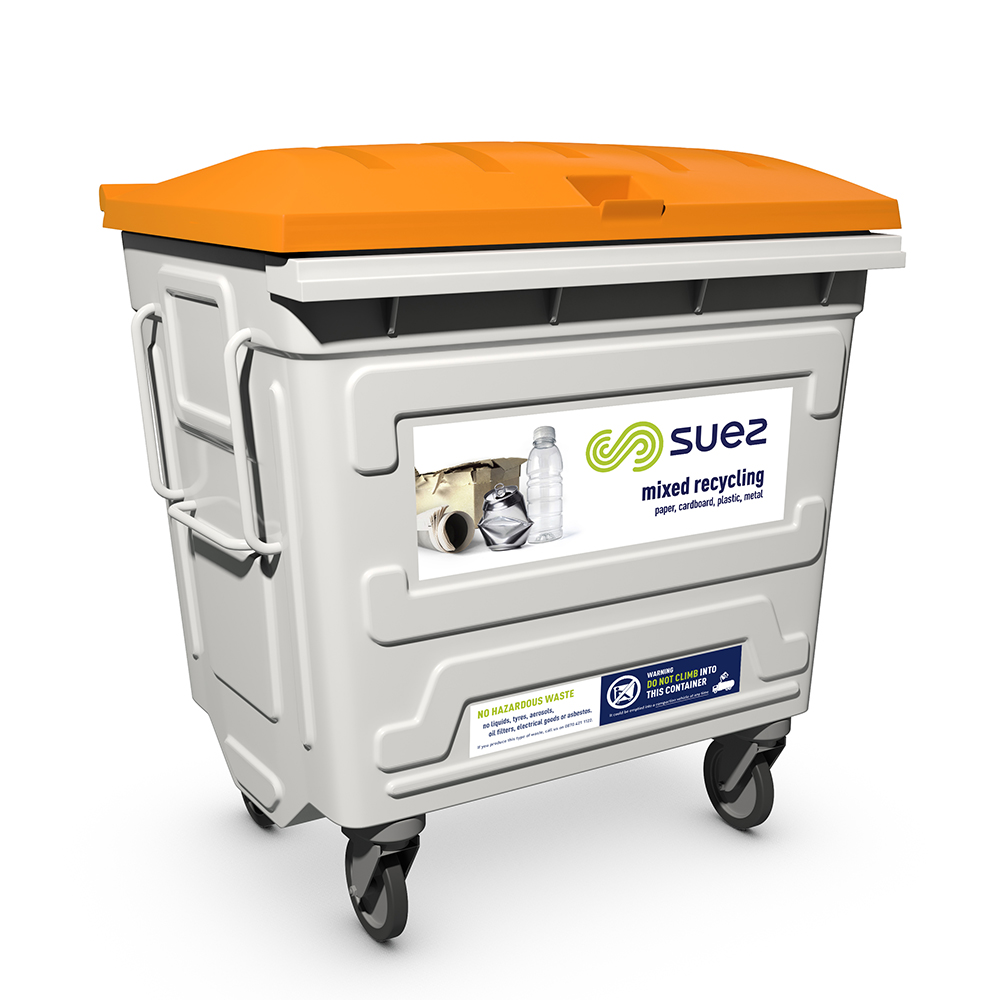
Dry mixed recycling (DMR)
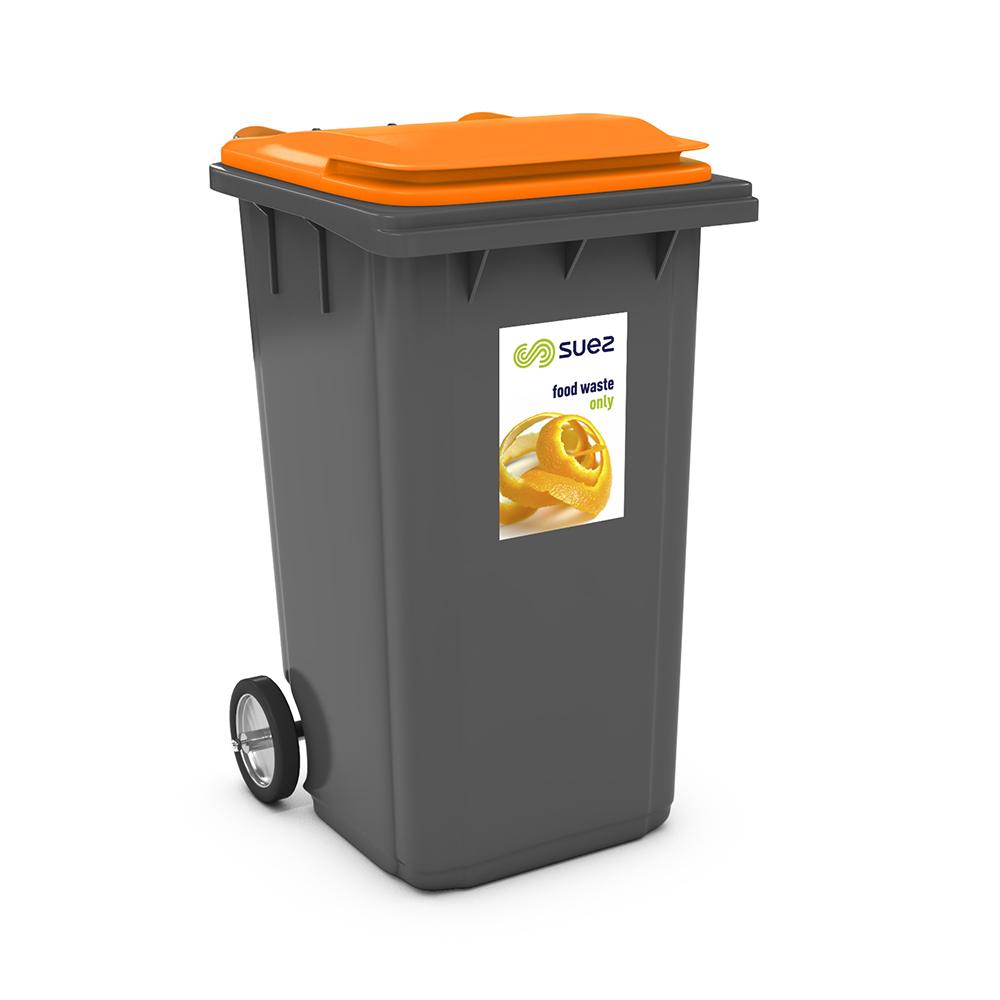
Food waste
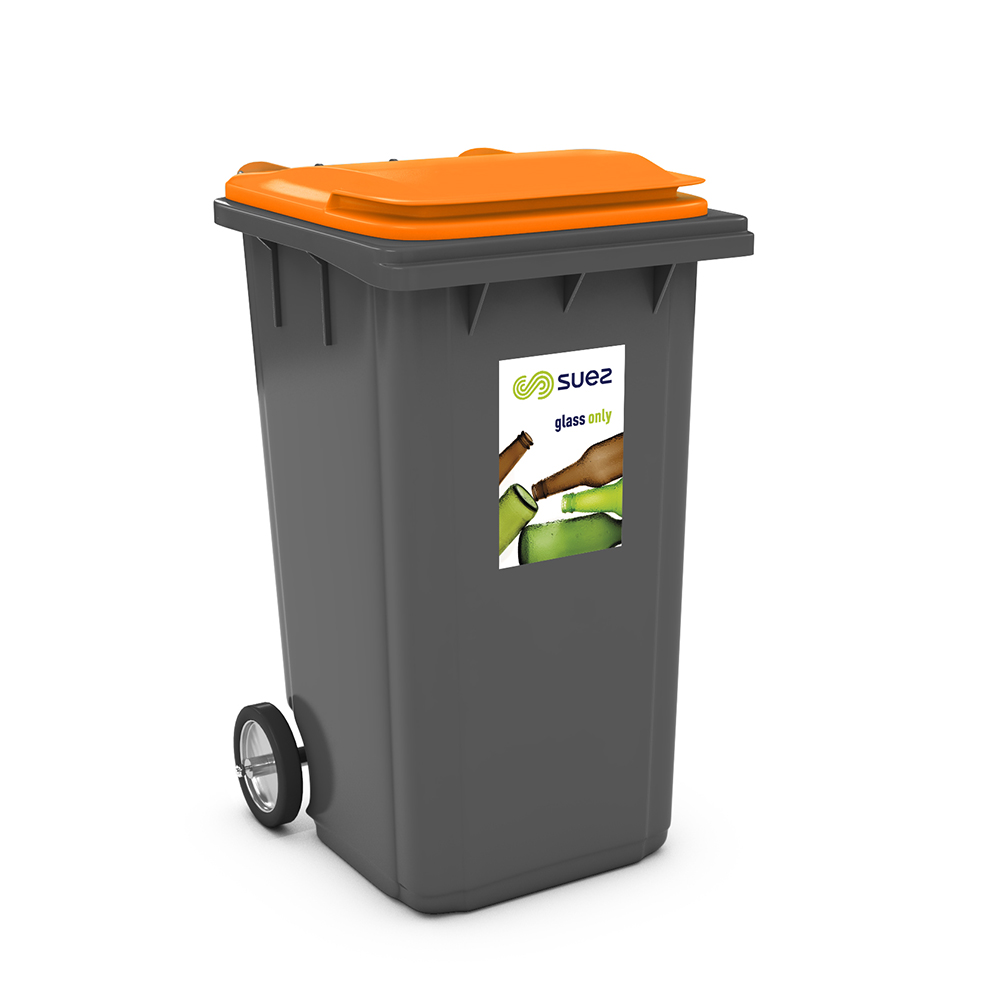
Glass recycling
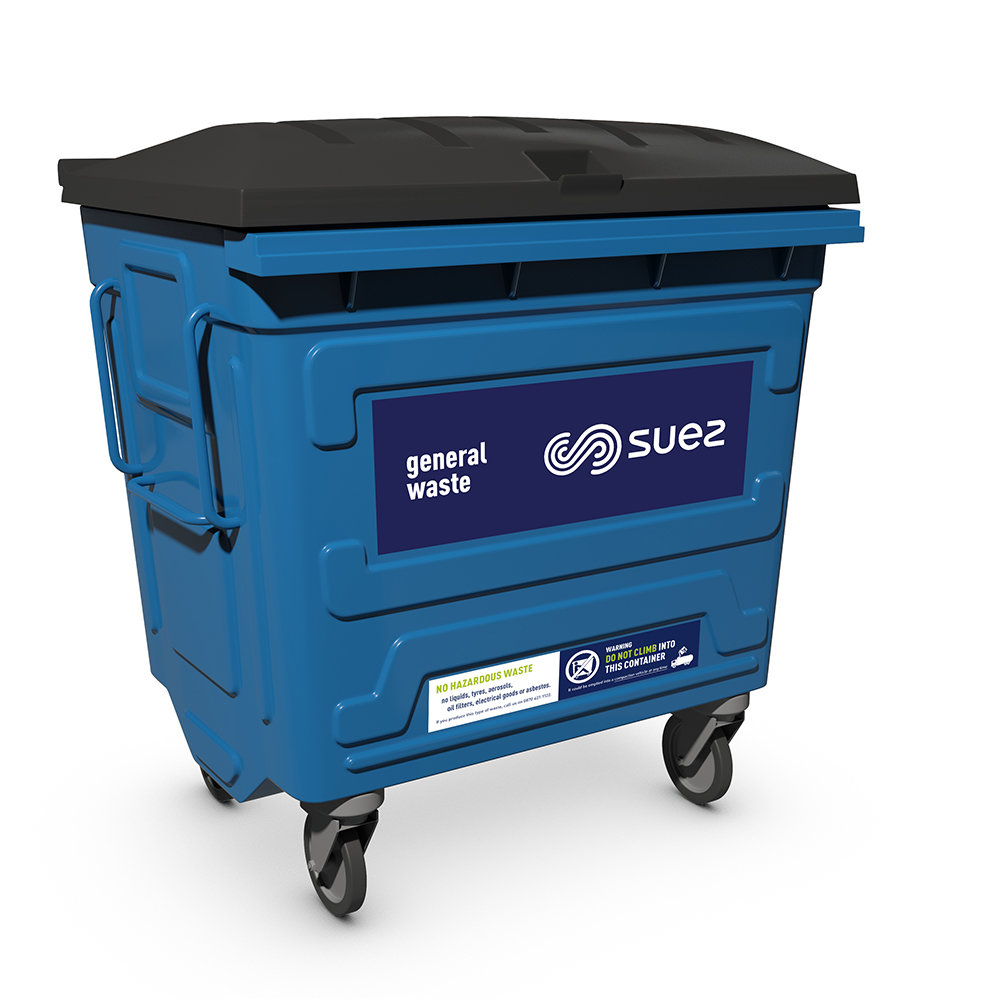
General waste
Get in touch
Get in touch with us today to book a free on-site waste audit. We'll look at how waste is managed at your site and create a solution tailored to your specific business requirements.
Stay compliant and keep it simple with SUEZ.
Form is loading.
If the form does not load after a few seconds, please reload the page (CTRL + F5 or (or Cmd + Shift + R on Mac).
Frequently asked questions
Do I need to have a separate bin for each type of waste?
No, you do not necessarily need to have a separate bin for each waste stream listed. We offer dry mixed recycling (DMR) containers, so you can put different recycling materials including paper, card, metals and plastics together in one container. However, food waste needs to be collected in a separate food waste bin.
I don’t produce a lot of food waste, do I still need a separate bin?
Yes, under the legislation any food waste, from teabags to leftovers, must be collected separately. Food waste must not be mixed with dry recycling or general waste.
How will Simpler Recycling affect the cost of my waste management?
Adopting better waste management processes can generally increase efficiencies and lower waste disposal costs. Contact your local Customer Hub for further information.
I already have separate bins for food waste and recycling – do I need to do anything else?
To ensure your current waste management is compliant with legislation, please contact us as soon as possible.
